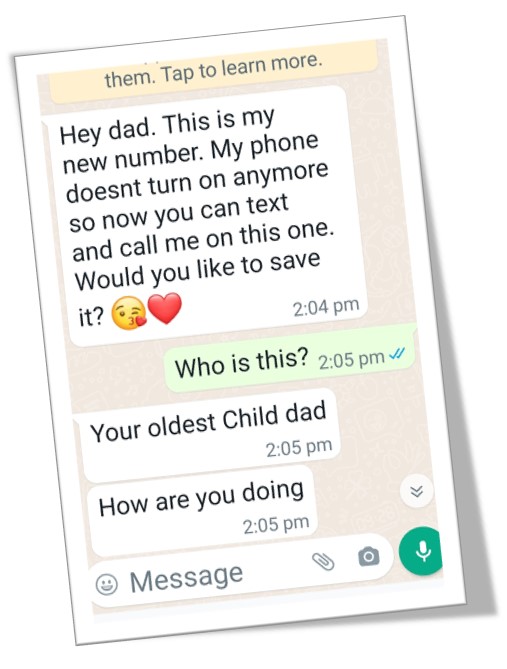A Sunshine Coast woman has raised the alarm about a very sneaky and clever scam doing the rounds, preying on the love of family to trick them out of substantial amounts of money.
And statistics show one particular demographic is most at risk.
One of the woman’s acquaintances received a desperate text message from someone who claimed to be her daughter and asking for urgent funds to help her pay an emergency bill.
The amount the person asked for was a staggering $10,000.
Sue Gosewisch, of Caloundra, was so shocked about the heartless scam that she wanted to warn others, especially the elderly.
Do you have an opinion to share? Submit a Letter to the Editor with your name and suburb at Sunshine Coast News via: news@sunshinecoastnews.com.au
“Especially older people would be very interested to know about this, because we do feel deficient (about such things),” she said.

Here’s how these scammers operate: they send a text to an unwitting phone number, pretending to be their son or daughter, texting from the different number after claiming to have lost their own phone, and asking for emergency funds.
While the parents immediately might get worried about their child, the scammer follows up with other messages pushing their request as urgent.
“They’re very clever people and I think they’re opportunists, and it’s a way for easy money,” Ms Gosewisch said.
In her acquaintances’ case, their daughter was at work in Brisbane, with her phone safely stowed in her locker, so they frantically Googled for a landline and phoned her office straight away.
Local journalists supporting local people. Help keep independent and fair Sunshine Coast news coming by subscribing to our free daily news feed. All it requires is your name and email. SUBSCRIBE here now.
“They were worried about her, they couldn’t get onto her,” she explained.

“And she actually answered, they asked her, ‘What’s this all about, what do you need $10,000 for?’ and she replied, ‘Dad, it’s a scam’.”
“I think in this case they made the mistake of asking for too much.”
Ms Gosewisch said the experience had taught here to be extra wary and vigilant – a message she wanted to share with others.
“What we learned is, you contact the person and you don’t do anything until you can get through to the person.
“…if the phones are down, no matter, you must get in contact with them.”
The Australian Competition and Consumer Commission is aware of the so-called ‘Hi Mum’ scam.
It noted that more than 1,150 Australians fell victim to the scam in the first seven months of this year, with total reported losses of $2.6 million. The vast majority were reported in June and July.
“It’s important to stop and think if you get a message, especially on WhatsApp, because chances are it’s not your family member or friend – it’s a scammer,” ACCC Deputy Chair Delia Rickard said.
“Above all, never send money without being absolutely sure who you are sending it to.”
The ACC said more than two-thirds of family impersonation scams have been reported by women over 55 years of age, accounting for more than $1.4 million in losses.
For any suspicious behaviour or suspected scamming, you can report them to Policelink 131444, Department of Fair Trading, Scamwatch and the Australian Cyber Security Centre.





